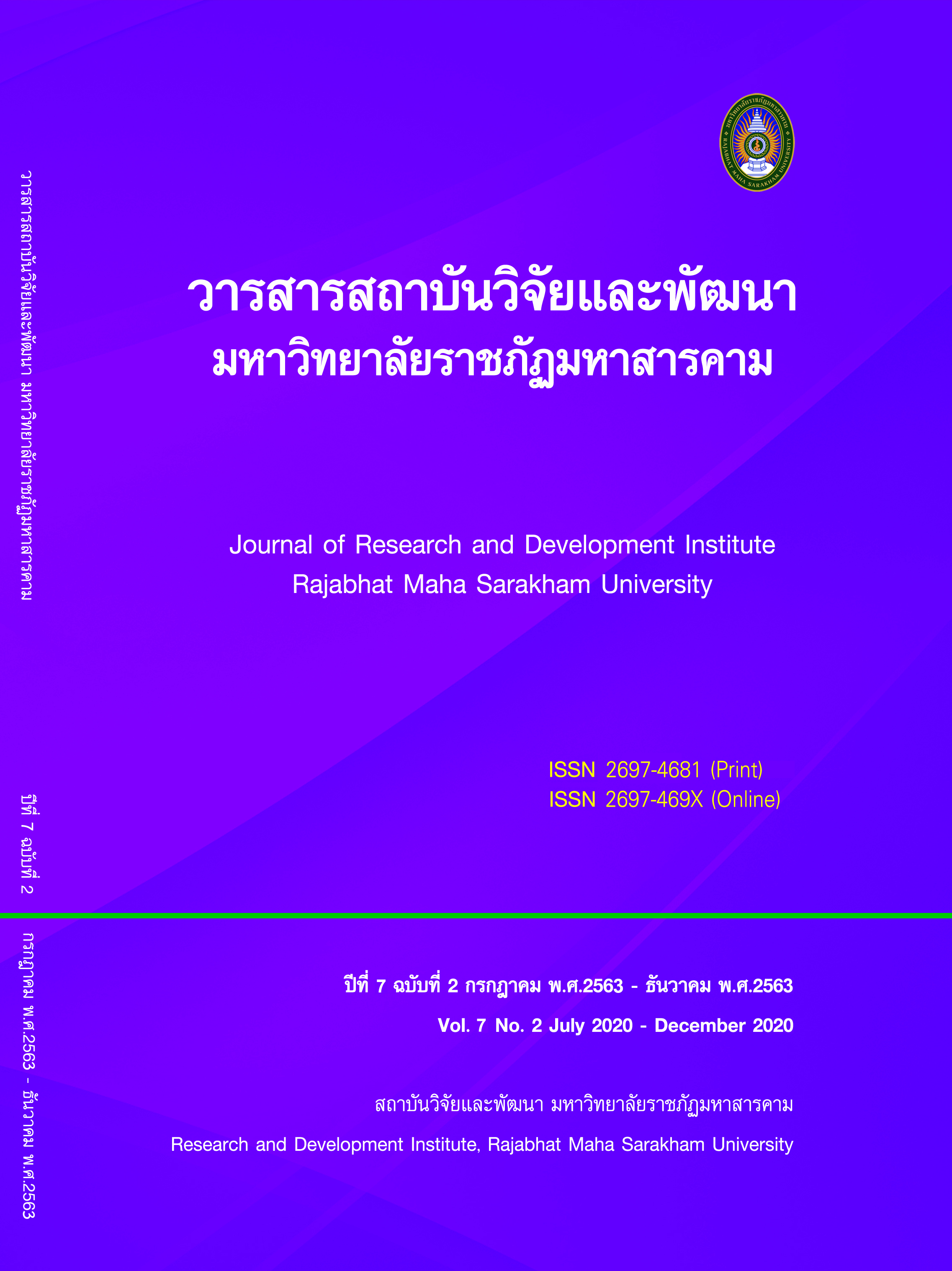A pilot project to environmental-friendly lodging and accommodation in Ubon Ratchathani Province
Keywords:
Lodging and Accommodation, Environmental-Friendly, Pilot ProjectAbstract
The purpose of this study were to apply the operational guildline of environmental-friendly lodging and accommodation through the training program and presented the best model of environmental-friendly lodging and accommodation’s operation. The population in this research consists of 2 parts 1) 219 entrepreneurs/ managers of lodging and accommodation at Ubon Ratchathani, and sample groups were 30 entrepreneurs/ managers who were pleased to attended the training program, and 2) the population who attended traning program, and sample groups were only 1 entrepreneur/manager. Data were collected through interview and focus group. Content analysis were used to analyse data.
The result found that 1) The efficiency way to operated environmental-friendly lodging and accommodation consists of management styes, financial management and human resource development 2) The entrepreneurs who attended the traning program suggested that there were 4 key success factor those are (1) organizational culture, structure and policy (2) personnel (3) budget and (4) law and regulations 3) The participant who wish to apply for green hotel certificate suggested that there were 5 areas which hotel must consider included (1) planning of day-to-day operation (2) adjust operation (3) creativity (4) job variety and selection and 5) open mind for other suggetions.
References
References
Chanyaphak Lalaeng et al (2015). Environmentally friendly business operations of hotel business that affect the satisfaction of tourists in Trang Province. Maejo University, Chumphon Campus.
Chutikarn Sriwiboon. (2014). Principles of human resource development management. Bangkok: Dr. Petch Publishing House.
Kannikar Chakesaengrat. (2010). Human Resource Management. Bangkok : Ramkhamhaeng University Press.
Ministry of Tourism and Sports. (2014). Summary of tourist situation in August 2014. Bangkok: Department of Tourism, Ministry of Tourism and Sports.
National Statistical Office. (2016). Summary of domestic tourism situation 2009-2011. [Online] http://service.nso.go.th/nso/web/statseries/statseries23.html. [1 August 2016].
Permsakul Leksansern. (2015). 7 factors for success in organizing training/seminars. [Online] http://www.trainingdesign.net/. [9 เมษายน 2561].
Piyada Wachirawongsakorna and Ussanee Timsungnern. (2015). “Assessment of Environmentally-Friendly Services of Hotels in the Lower Northern Part of Thailand”, Journal of Environmental Management, 11 (1) : 98 – 113.
Pornchai Jedaman. (2015). Sufficiency Economy : Dimensions and dynamics of sustainable human resource management in the new millennium. Mahasarakham: Khum printing.
Rattanaporn Boonnuch. (2012). Development and training affecting the employee’s efficiency : case study Provincial Electricity Authority, Area 1 (Central Region) Phra Nakhon Si Ayutthaya Province. Independent research, Faculty of Business Administration :Rajamangala University of Technology Thanyaburi.
Sirapatsorn Wongthongdee. (2013). Human Resource Management. Bangkok: Printing House of Chulalongkorn University.
Supanee Saridvanich. (2010). Strategic Management. Bangkok : Thammasat University Printing House.
Suthinee Rurkkhum. (2014). Human resource development: principles and applications. Bangkok : Chulalongkorn University Press.
Tourism Authority of Thailand. (1998). Amazing Thailand 1998-1999. Bangkok: Tourism Authority of Thailand.
Downloads
Published
How to Cite
Issue
Section
License
Articles that are published are copyrighted by the authors of the articles







